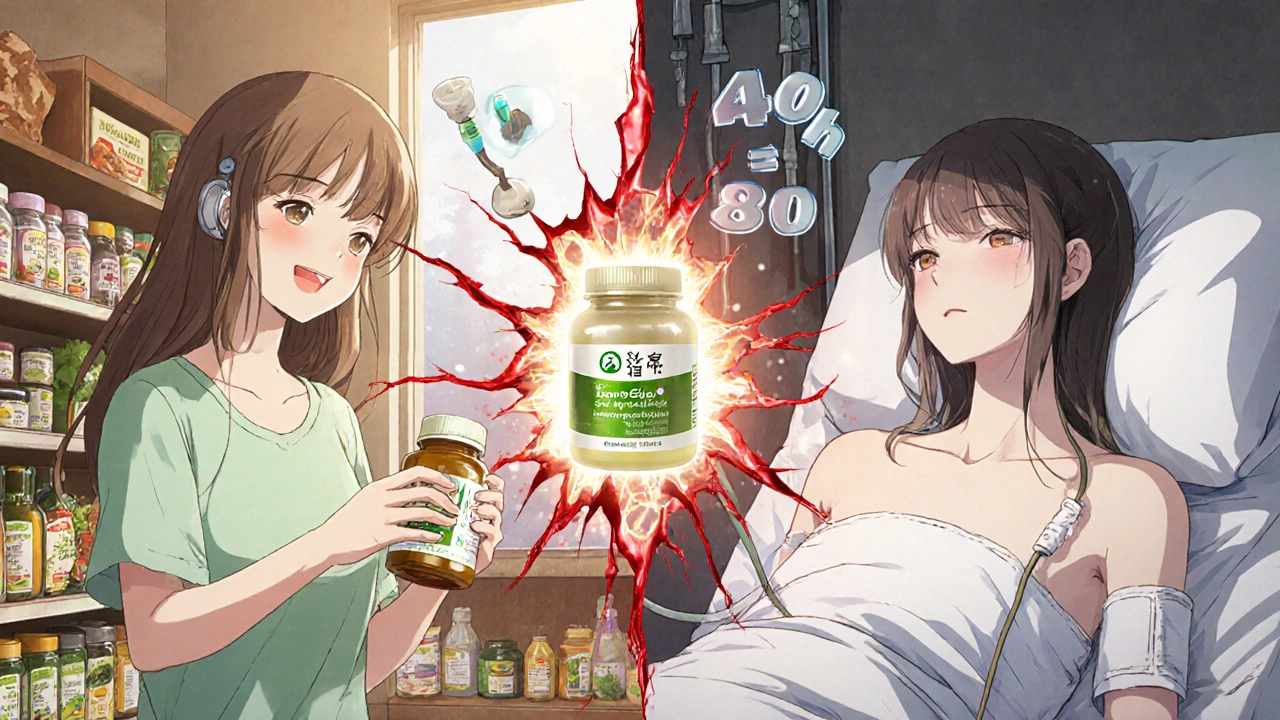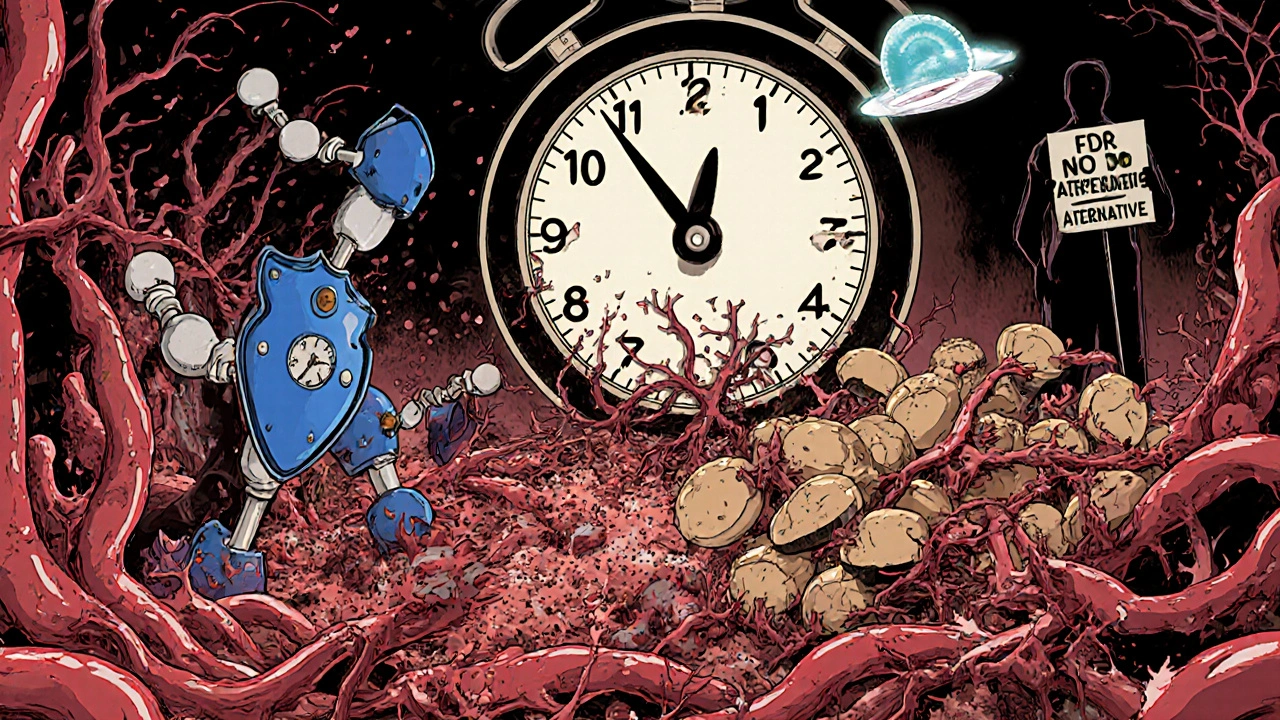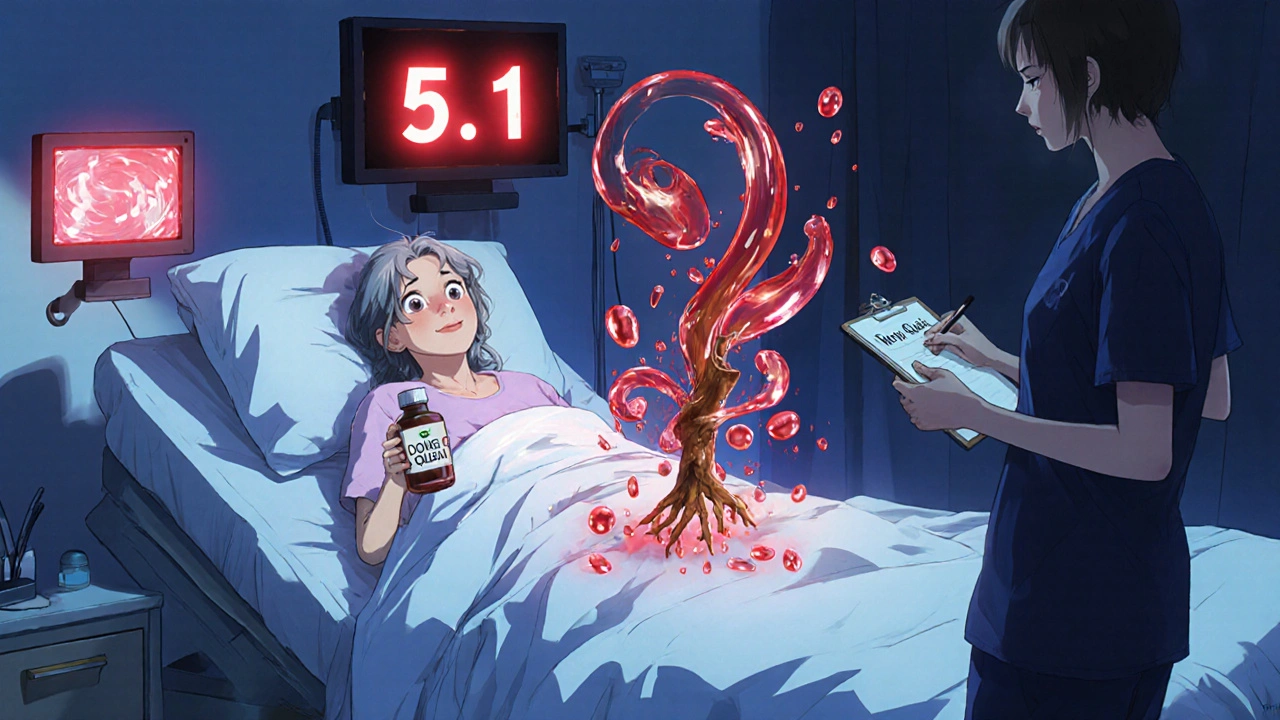If you're taking warfarin to prevent blood clots, and you're also using Dong Quai for menopause, cramps, or just because it’s "natural," you could be putting yourself at serious risk. This isn’t theoretical. People have ended up in the hospital because of it.
Why This Interaction Is Dangerous
Warfarin is a powerful blood thinner. It works by slowing down your body’s ability to form clots. Too little, and you risk a stroke or pulmonary embolism. Too much, and you could bleed internally-inside your brain, gut, or muscles-with little warning. The goal is to keep your INR (a blood test that measures clotting time) between 2 and 3. Even a small bump above 4.0 increases your risk of major bleeding by more than 300%. Dong Quai, a root used in traditional Chinese medicine for over 2,000 years, contains natural compounds like ferulic acid and osthole. These substances don’t just mimic warfarin-they work alongside it. They block platelets from sticking together, making your blood even thinner. It’s like turning up the volume on a song you’re already listening to at full blast. You don’t need more warfarin to bleed. Just adding Dong Quai can do it. Studies show this isn’t rare. One review found that one in five people in Malaysia taking warfarin also used herbal products. In the U.S. and Singapore, 10-20% of anticoagulant users take supplements like Dong Quai without telling their doctor. Many think, "It’s herbal, so it’s safe." That’s the biggest mistake.How It Works: More Than Just "Additive"
Some sources say the interaction is "pharmacodynamic"-meaning Dong Quai and warfarin hit the same target from different angles. That’s true. But there’s more. Lab studies show Dong Quai can also interfere with liver enzymes (CYP2C9 and CYP3A4) that break down warfarin. If those enzymes slow down, warfarin sticks around longer. Your body doesn’t clear it as fast. That means even if your dose hasn’t changed, the drug builds up in your system. One study found warfarin’s half-life could stretch from 40 hours to over 80 hours in people taking Dong Quai. That’s more than three days of extra effect. And it’s not just about the dose. Dong Quai isn’t standardized. One bottle might have 10 mg of active compounds. Another from the same brand, bought six months later, might have 80 mg. The U.S. Pharmacopeia found up to an 8-fold difference in potency between batches. You can’t predict how much you’re really taking. Your doctor can’t adjust your warfarin based on what’s in the capsule.Real Cases, Real Consequences
A 68-year-old woman in Ohio started taking Dong Quai capsules for hot flashes. Her INR had been steady at 2.6 for months. Two weeks after starting the supplement, she bruised easily, then noticed blood in her urine. Her INR jumped to 5.1. She was hospitalized. No other changes-no new meds, no diet shifts, no alcohol. Just Dong Quai. Reddit threads from r/anticoagulants in late 2023 had 17 separate posts from people who saw their INR spike after starting Dong Quai. One user wrote: "I thought it was for hormones, not blood. My doctor said if I hadn’t stopped it, I could’ve had a stroke from bleeding inside my skull." HealthUnlocked forums tracked 23 cases between 2020 and 2023 where unexplained INR spikes were traced back to Dong Quai. On average, INR rose by 1.7 points-enough to push someone from safe to dangerous in under a week.
What the Experts Say
Major medical groups are clear:- The Cleveland Clinic says: "Avoid Dong Quai in warfarin-treated patients due to lack of data." They list it alongside ginkgo and garlic-herbs known to cause bleeding.
- The University of California San Diego marks Dong Quai with an upward arrow (↑) under "Increased Risk of Bleeding," alongside fish oil and turmeric.
- The American Heart Association calls it a "high-risk herb" for anticoagulant users.
- Dr. Catherine Ulbricht, a top pharmacist at Massachusetts General, says: "It can push INR from 2.5 to over 4.0 without warning. That’s not a small risk-it’s a life-threatening one."
What You Should Do
If you’re on warfarin:- Stop taking Dong Quai immediately. Don’t wait for symptoms. Don’t assume "it’s just a little."
- Tell your doctor. Even if you’ve been taking it for years. Even if you think it’s harmless. Write it down. Show them the bottle.
- Get your INR checked within 3-5 days. Your doctor should monitor you closely for at least two weeks after stopping.
- Don’t replace it with another herb. Ginkgo, garlic, ginger, turmeric, and fish oil all carry the same risk. "Natural" doesn’t mean safe with blood thinners.



I am a pharmaceutical expert with over 20 years of experience in the industry. I am passionate about bringing awareness and education on the importance of medications and supplements in managing diseases. In my spare time, I love to write and share insights about the latest advancements and trends in pharmaceuticals. My goal is to make complex medical information accessible to everyone.